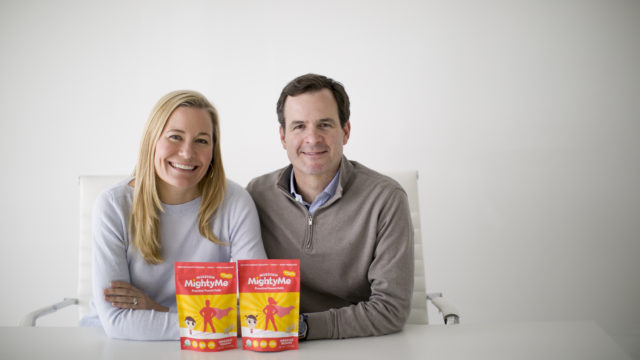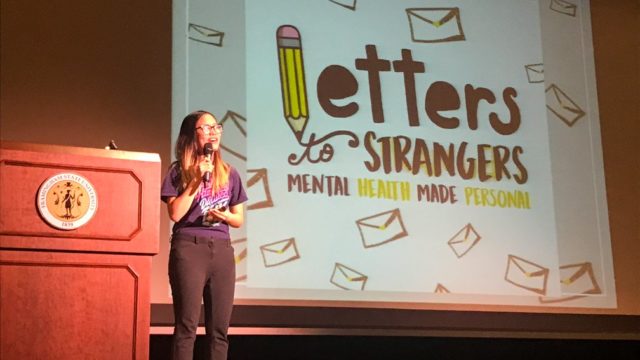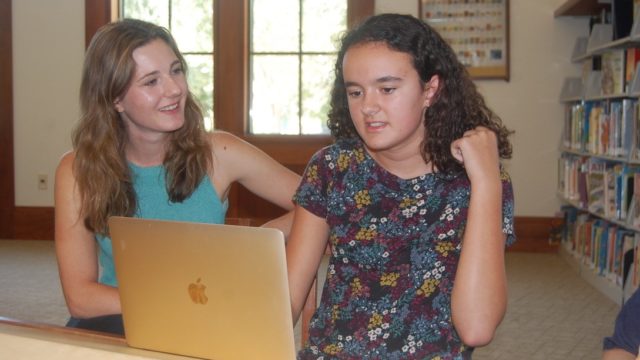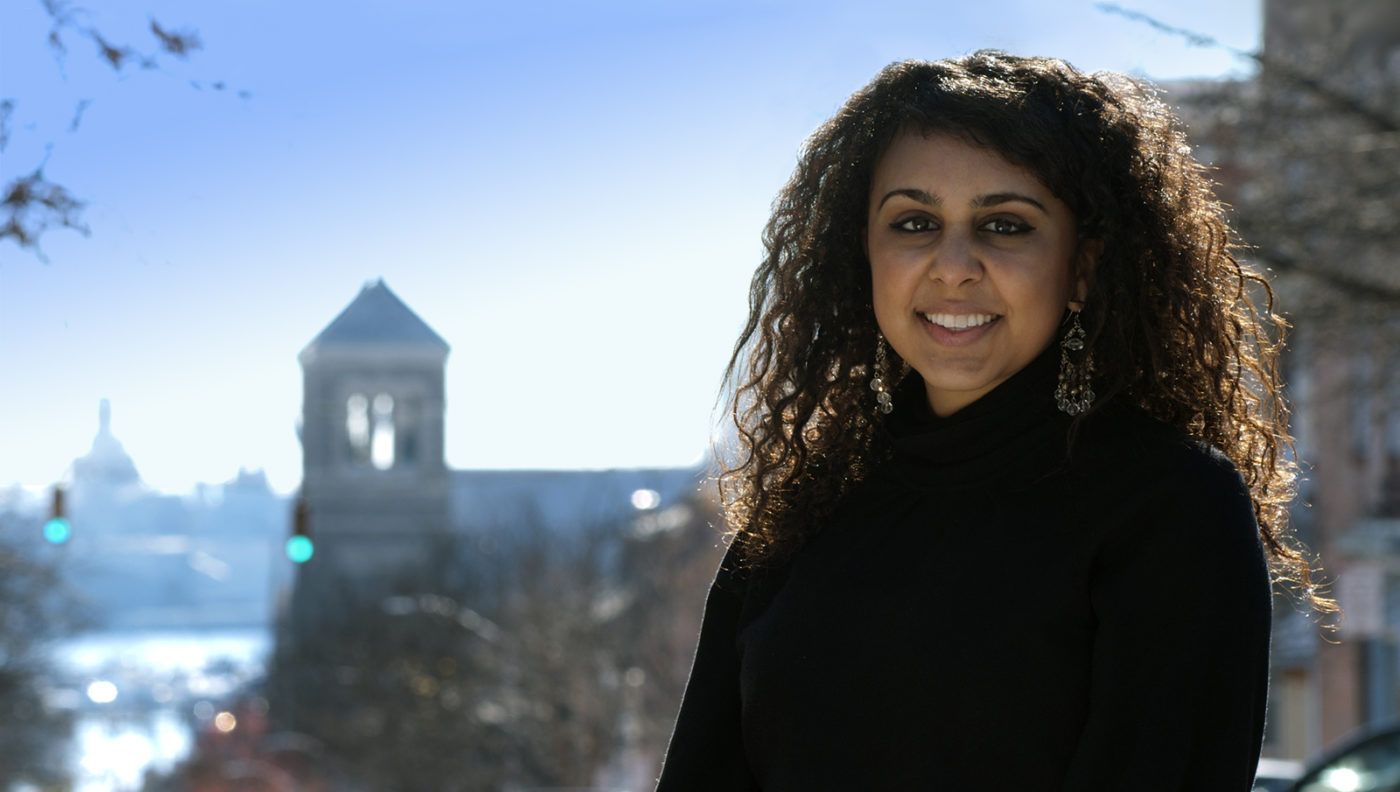
Caring Deeply About Her Community
Lamees El-sadek learned a lot about life growing up in a small, rural Mississippi town. As an Egyptian Muslim living in an ethnically separated Southern Baptist community, she became acutely aware of systematic population differences in income, education, health, and civil treatment according to race, religion and residence. While her parents had gone to college in Egypt, they had no idea about how to help her navigate the American education system. In fact, they had assumed college in the U.S. was free, as it was in Egypt, so they had saved no money for her education. After a lot of research, she realized how limited her local public high school was and that getting into college would require much more. These realizations led her to spend her junior and senior years at the Mississippi School for Mathematics and Science, a residential boarding school three hours from home.
“It was the first time I was in such a diverse community of religions, ethnicities and political opinions,” she explains. “Those two years were pivotal and influential in my development.”
Spending night after night in the library, applying to scholarship after scholarship, Lamees was accepted full-ride into fourteen ivy-tier universities around the nation, but decided to stay home and attend Millsaps College in Jackson, MS. Thanks to her Coca-Cola Scholarship, she had the opportunity to study abroad in over half a dozen foreign countries, but her travels only strengthened her growing resolve to return to Mississippi to serve a community with many needs.
“I thought the best way to help people was to become a doctor,” she recalls. “I interned with a Jackson physician for three years, but I became very frustrated at seeing the same problems in the same groups of people. I could see that providing physical and knowledge resources earlier in these people’s lives would help them better control their own health, so they wouldn’t be as dependent on the system. It would also allow them to address other domains of their life, including the cyclic relationship of health, education and poverty. That’s when I decided to study public health.”
She also became interested in community organizing and started the “Throw What You Know” project, which educated citizens to throw away their religious stereotypes and realize that their similarities outweigh their differences. She used the program to train high school ambassadors to get groups working together in the community to address the city’s needs.
When Lamees graduated from Millsaps College, she was faced with a hard decision: attend graduate school at Johns Hopkins University or accept a Fulbright Fellowship to Egypt. Ultimately, the decision was taken out of her hands when the Fulbright Fellowship was cancelled due to the Egyptian Revolution of 2011.
“I never thought I would find myself at Johns Hopkins,” she says, “but I am very fortunate to be here studying inequalities according to ethnicity, urban and rural residence, age and income level – and how these inequalities affect health disparities. The South is the epicenter for a lot of America’s chronic health problems and my graduate focus has reaffirmed my commitment to return home to Mississippi to help.”
Still, Lamees is also committed to development in the Middle East. During the summer of 2012, she traveled to Cairo to research and analyze the financial and social burden of breast cancer treatment among Egyptian women. She hopes to present her research to the Egyptian Ministry of Health with the goal of increasing funds for more preventive services, such as mammograms, and calling attention to the country’s broken health coverage system.
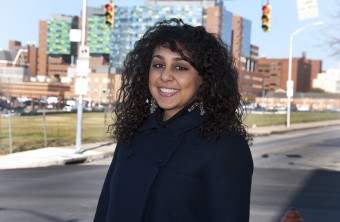 Lamees stays busy working on behalf of youth in Baltimore and back in Crystal Springs. As a Youth Organizer for students from Baltimore City Public Schools, she trains young community leaders and activists as they prepare to peer-educate a CDC-funded curriculum on youth violence. For Crystal Springs youth, she is helping to implement the NOW movement, a city campaign to train area youth in leadership and grow their interest in social justice as the town develops youth-led programs. She has also been involved in the Baltimore Supper Club Initiative, a mutual mentorship program focused on connecting and redirecting youth in the juvenile justice system.
Lamees stays busy working on behalf of youth in Baltimore and back in Crystal Springs. As a Youth Organizer for students from Baltimore City Public Schools, she trains young community leaders and activists as they prepare to peer-educate a CDC-funded curriculum on youth violence. For Crystal Springs youth, she is helping to implement the NOW movement, a city campaign to train area youth in leadership and grow their interest in social justice as the town develops youth-led programs. She has also been involved in the Baltimore Supper Club Initiative, a mutual mentorship program focused on connecting and redirecting youth in the juvenile justice system.
“Those hours I spend with the youth every week make a difference in their lives and change the way they look at the world and how they perceive themselves,” she says. “But as important is how they affect me – they supply my energy and renew my mission on a constant basis. They remind me of where I was 10 years ago and where a person can get with the support of others who believe in you.”
The support she received from the Coca-Cola Scholars Foundation created a great sense of responsibility in Lamees. “I realized they were rewarding me for my past accomplishments, but more so they were entrusting me with the responsibility of carrying all of the people I represent with me – of bringing their stories and voices to the table. My education isn’t intended to serve only me; it’s for the community I come from and all of the communities to which I will be exposed. I think every Coca-Cola Scholar realizes this responsibility.”


